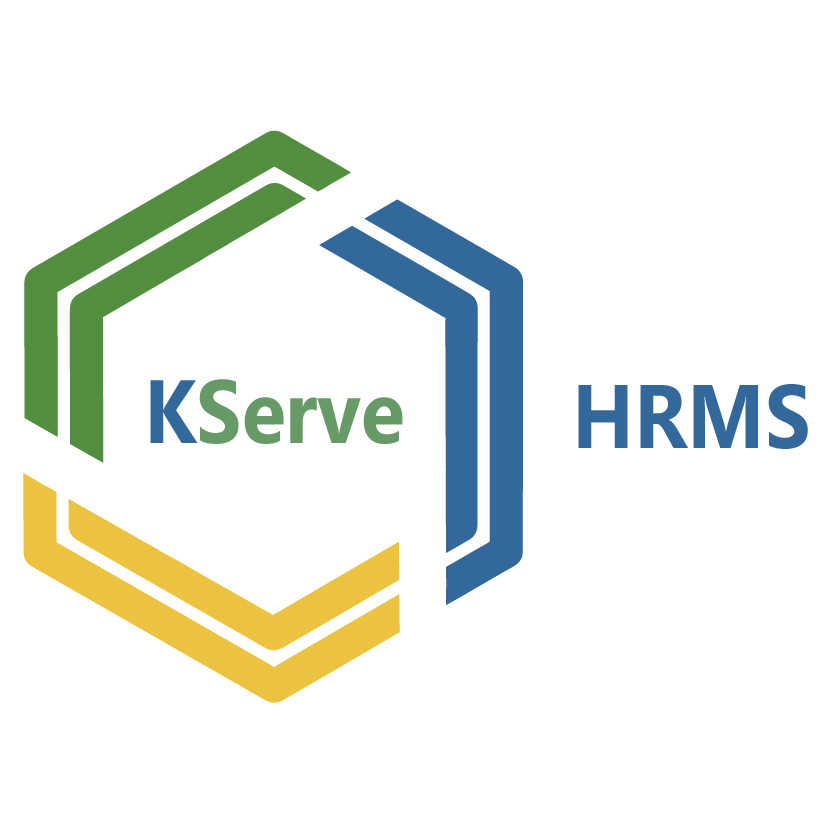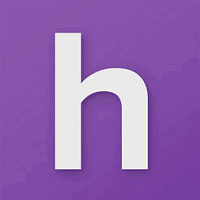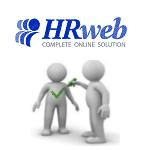Description

Espresso HR

KServeHRMS
Comprehensive Overview: Espresso HR vs KServeHRMS
Espresso HR and KServeHRMS are both human resource management systems (HRMS) designed to streamline HR functions and improve the efficiency of HR operations in organizations. Here's a comprehensive overview of both:
Espresso HR
a) Primary Functions and Target Markets
-
Primary Functions:
- Employee Management: Provides tools for managing employee records, tracking attendance, leave management, and employee lifecycle management.
- Payroll Management: Automates payroll processing, tax calculations, and compliance with legal requirements.
- Recruitment and Onboarding: Supports recruitment processes, job postings, applicant tracking, and onboarding of new hires.
- Talent Management: Offers performance management features including appraisals and feedback.
- Benefit Administration: Manages employee benefits, insurance, and other perks.
- Analytics and Reporting: Delivers insights and reports to help employers make informed HR decisions.
-
Target Markets:
- Primarily targets small to medium-sized enterprises (SMEs) that need a robust HR solution without overly complex features.
- Also suitable for startups looking for scalable HR solutions as they grow.
b) Market Share and User Base
- Market Share: Espresso HR is a niche player primarily focusing on the SME segment, so it doesn't compete strongly with leading enterprise HRMS solutions in terms of market share.
- User Base: It boasts a loyal user base among SMEs, with a presence primarily in regions with a high number of small businesses.
c) Key Differentiating Factors
- User-Friendliness: Known for its intuitive interface, making it accessible and easy to use for businesses without a dedicated HR department.
- Cost-Effectiveness: Positioned as a cost-effective solution for smaller companies.
- Scalability: Offers features that scale with company growth, making it attractive for dynamic startups.
KServeHRMS
a) Primary Functions and Target Markets
-
Primary Functions:
- Comprehensive HR Management: Similar to Espresso HR, it includes employee data management, payroll processing, attendance tracking, and performance management.
- Compliance and Reporting: Strong focus on compliance with local labor laws and generating compliance reports.
- Learning and Development: Provides modules for employee learning, training programs, and development plans.
- Customizable Workflows: Highly customizable to fit the unique HR processes of different organizations.
-
Target Markets:
- Aimed at medium to large enterprises that need a comprehensive HR solution with strong customization capabilities.
- Suitable for industries with complex HR requirements, such as manufacturing, IT, and consulting.
b) Market Share and User Base
- Market Share: KServeHRMS has a more significant presence among mid-sized to large corporations, thereby having a more substantial market share in the enterprise HRMS segment.
- User Base: Includes larger corporations, often spread across multiple regions, necessitating a robust and scalable HRMS.
c) Key Differentiating Factors
- Customization: Highly customizable workflows and modules, appealing to larger organizations with specific HR process needs.
- Integration Capabilities: Easily integrates with other enterprise solutions, such as ERP and CRM systems.
- Global Reach: Better suited for organizations with an international presence due to its compliance and multi-currency features.
Comparison Conclusion
While both Espresso HR and KServeHRMS aim to improve HR efficiency, they cater to different segments of the market. Espresso HR is focused on providing simple, effective solutions for SMEs and startups, while KServeHRMS targets medium to large enterprises with more complex needs and a greater focus on customization and integration. Consequently, Espresso HR stands out for its ease of use and affordability, while KServeHRMS is notable for its extensive capabilities and adaptability to complex business environments.
Contact Info

Year founded :
2019
Not Available
Not Available
United Kingdom
http://www.linkedin.com/company/espresso-hr

Year founded :
2003
+91 44 4261 5064
Not Available
India
http://www.linkedin.com/company/kservehrms
Feature Similarity Breakdown: Espresso HR, KServeHRMS
When analyzing Espresso HR and KServeHRMS, it is important to consider the core features they offer, the user interface (UI) design, and any unique features that distinguish them from one another.
a) Core Features in Common
Both Espresso HR and KServeHRMS are designed to streamline HR processes, and they typically share the following core features:
-
Employee Management: Both solutions offer modules to store and manage employee data, including personal details, job roles, and employment history.
-
Payroll Management: They likely have payroll processing functionalities to automate salary calculations, tax deductions, and disbursements.
-
Attendance and Leave Management: Each platform generally provides tools to track employee attendance, leave requests, and approvals.
-
Recruitment Management: Basic recruitment features like tracking job applications, managing candidate data, and posting job openings are common.
-
Performance Management: Both solutions often include performance tracking to evaluate employee performance and facilitate appraisals.
-
Reporting and Analytics: Standard reporting and data analytics tools are commonly available to provide insights into HR metrics.
b) User Interface Comparison
The user interfaces of Espresso HR and KServeHRMS can differ based on design philosophy and user experience focus:
-
Espresso HR: Typically aims for a sleek, modern interface with intuitive navigation that caters to small to medium-sized businesses. It might feature a dashboard-centric design, emphasizing quick access to core functionalities.
-
KServeHRMS: May prioritize robustness with a comprehensive menu system suitable for larger organizations. The interface might be more data-intensive, with a detailed and structured layout designed for power users.
Overall, the differences in UI are often about targeting specific user needs, with Espresso HR leaning towards ease of use and KServeHRMS offering detailed features for complex HR environments.
c) Unique Features
Unique features are those that give one product an edge over the other:
-
Espresso HR:
- Integration with Other Business Tools: Might offer seamless integration with third-party applications like Slack, Microsoft Teams, or accounting software, providing flexibility for tech-savvy businesses.
- Mobile-Friendly Applications: Could have a strong mobile app offering, ensuring accessibility for on-the-go management.
-
KServeHRMS:
- Localized Compliance Features: May offer compliance management specific to various geographical regions, which could be crucial for businesses with an international presence.
- Customization Capabilities: Likely offers extensive customization options allowing businesses to tailor HR processes specific to complex organizational needs.
In summary, while Espresso HR and KServeHRMS have many overlapping features that are essential for effective HR management, they stand apart with unique offerings and UI designs that cater to different business requirements and user preferences.
Features

Not Available

Not Available
Best Fit Use Cases: Espresso HR, KServeHRMS
Espresso HR and KServeHRMS are both human resource management systems (HRMS) designed to streamline and enhance HR operations. However, they each have distinct features and benefits that make them suitable for different types of businesses or projects.
a) Espresso HR
Types of businesses or projects where Espresso HR is the best choice:
-
Small to Medium Enterprises (SMEs):
- Espresso HR is particularly well-suited for small to medium-sized businesses that require robust HR functionalities without the complexity and cost associated with larger enterprise solutions. Its user-friendly interface and straightforward implementation process make it easy for SMEs to adopt.
-
Startups:
- Startups looking for an easy-to-use system to establish their HR processes can benefit from Espresso HR. It provides essential features to manage employee records, payroll, and benefits effectively, which are crucial for rapidly growing teams.
-
Technology and Creative Industries:
- Companies in tech and creative sectors that prioritize agile and flexible work environments may find Espresso HR appealing due to its customizable and scalable nature.
-
Companies with Limited HR Staff:
- Businesses that have a small HR team or a single HR manager may find Espresso HR beneficial, as it automates many routine HR tasks, thus freeing up the HR staff to focus on more strategic initiatives.
b) KServeHRMS
Scenarios where KServeHRMS would be the preferred option:
-
Large Enterprises:
- KServeHRMS is designed to handle the complexity and scale required by large organizations. It offers comprehensive modules that cover everything from recruitment and onboarding to performance management and compliance, making it ideal for enterprises with extensive HR needs.
-
Industries with Complex HR Regulations:
- Industries such as finance, healthcare, or manufacturing, which are subject to stringent regulatory requirements, may prefer KServeHRMS due to its robust compliance and reporting capabilities.
-
Global or Multi-Location Businesses:
- Companies that operate across multiple countries or have numerous locations can benefit from KServeHRMS, as it supports multi-currency, multi-lingual, and localization features to stay compliant with local laws and regulations.
-
Organizations Prioritizing Advanced Analytics:
- Businesses that require in-depth analytics and reporting capabilities for strategic decision-making would find KServeHRMS a valuable tool due to its powerful analytical modules and dashboards.
d) Catering to Different Industry Verticals or Company Sizes
-
Espresso HR:
- Espresso HR is tailored for smaller to medium-sized companies across various industries such as technology, creative sectors, retail, and consultancy services. Its emphasis on ease of use and cost-effectiveness makes it a practical choice for businesses that do not require an extensive array of features but still want a reliable HR management solution.
-
KServeHRMS:
- KServeHRMS caters to a broader range of industries, including those with more complex HR needs such as manufacturing, healthcare, education, and banking. It is designed to accommodate both medium-sized and large enterprises, offering advanced features that support intricate HR processes, compliance, and global operations.
Overall, the choice between Espresso HR and KServeHRMS depends on the specific requirements, scale, and industry focus of the business in question. Each system offers unique strengths that can align with different organizational needs and strategic goals.
Pricing

Pricing Not Available

Pricing Not Available
Metrics History
Metrics History
Comparing undefined across companies
Conclusion & Final Verdict: Espresso HR vs KServeHRMS
Conclusion and Final Verdict for Espresso HR and KServeHRMS
When evaluating Espresso HR and KServeHRMS as potential HR management solutions, several factors must be considered to determine which product offers the best overall value. These considerations include feature set, ease of use, customer support, scalability, integration capabilities, and pricing.
a) Best Overall Value
KServeHRMS tends to offer the best overall value for businesses primarily due to its comprehensive feature set and scalable offerings. It is particularly beneficial for medium to large organizations that require a robust and customizable HR solution. The comprehensive tools for payroll, time tracking, employee management, and reporting ensure that KServeHRMS can address a wide range of HR needs efficiently.
Espresso HR, on the other hand, may provide more value for smaller businesses or startups that need a simple, user-friendly, and cost-effective HR tool without overwhelming complexity.
b) Pros and Cons
Espresso HR
-
Pros:
- User-friendly interface, easy to navigate for users with limited technical knowledge.
- Cost-effective, particularly for small to medium businesses.
- Quick setup and implementation with minimal learning curve.
- Good for businesses that need essential HR functionalities like employee tracking and basic analytics.
-
Cons:
- Limited advanced features, which might not be suitable for larger organizations with complex needs.
- Fewer integrations with third-party applications compared to more established HRMS solutions.
- Scalability can be an issue as the business grows and requires more advanced functionality.
KServeHRMS
-
Pros:
- Comprehensive suite of HR functionalities, including payroll, compliance, advanced analytics, and employee lifecycle management.
- Highly customizable and scalable, making it suitable for medium to large enterprises.
- Strong integration capabilities with other enterprise software and services.
- Robust support and training programs for users.
-
Cons:
- Can be complex and overwhelming for small businesses or startups that do not require a full suite of advanced features.
- Higher cost compared to simpler HR solutions, potentially leading to a higher investment for smaller companies.
c) Recommendations
For users trying to decide between Espresso HR and KServeHRMS, the decision should be based on the specific needs and scale of their organization:
-
Small businesses or startups should consider Espresso HR if they prioritize a straightforward, economical solution that covers essential HR needs without requiring a significant upfront investment or extensive training.
-
Medium to large organizations or those expecting rapid growth should consider KServeHRMS due to its scalability, robust feature set, and comprehensive support that can accommodate complex HR requirements.
Ultimately, businesses are encouraged to conduct a thorough assessment of their current HR needs and future growth plans while taking advantage of demos and free trials provided by both platforms to make an informed decision.
Add to compare
Add similar companies



